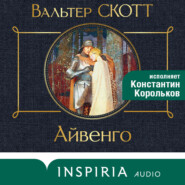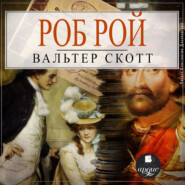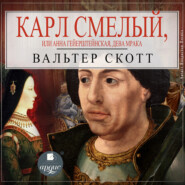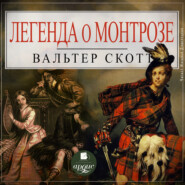По всем вопросам обращайтесь на: info@litportal.ru
(©) 2003-2024.
✖
Легкое чтение на английском языке. В. Скотт. Айвенго / Sir Walter Scott. Ivanhoe
Настройки чтения
Размер шрифта
Высота строк
Поля
secretly [‘si:kr?tl?], duke [dju:k], imprison [?m’pr?z(?)n], ally [‘?la?], throne [?r??n]
What the people of England didn’t know was that Prince John was secretly paying the Duke of Austria to keep his brother imprisoned. He and his Norman allies were planning to take the throne from his brother and make himself the King of England instead.
As he sat down and waved to the crowd (когда он уселся и махал рукой толпе; to wave – вызывать или совершать волнообразные движения; подавать сигнал, размахивать, махать /рукой, платком в знак приветствия, прощания и т. д./), Prince John noticed (принц Джон обратил внимание) that there was a loud discussion going on (что велся шумный спор; loud – громкий; звучный; шумный, шумливый; discussion – подробное обсуждение /проблемы, вопроса/; дебаты, дискуссия, прения) in one of the other galleries (в одной из других галерей). Isaac of York had come to see the tournament (Исаак из Йорка пришел посмотреть на турнир) together with his daughter (вместе со своей дочерью), but the Norman noblemen in the front of the gallery (но норманнские дворяне, /сидевшие/ в первых рядах галереи; front – передняя сторона чего-либо; in the front of – перед; впереди) were complaining loudly (жаловались громко) about letting a Jew sit next to them (на то, что еврею позволено сидеть рядом с ними: «о позволении еврею сидеть рядом с ними»).
crowd [kra?d], daughter [‘d?:t?], nobleman [‘n??b(?)lm?n], complain [k?m’ple?n]
As he sat down and waved to the crowd, Prince John noticed that there was a loud discussion going on in one of the other galleries. Isaac of York had come to see the tournament together with his daughter, but the Norman noblemen in the front of the gallery were complaining loudly about letting a Jew sit next to them.
Isaac knew that he had nothing to fear from the Normans, however (Исаак знал, что ему было нечего бояться норманнов, несмотря ни на что), because Prince John and his allies were interested (потому что принц Джон и его сторонники были заинтересованы) in borrowing a lot of money from the Jews of York (в одалживании большого количества денег у евреев из Йорка; borrowing – одалживание, заимствование; ссуда; заем; кредит). So he pushed his way through the crowd (поэтому он пробирался сквозь толпу; to push one’s way – проталкиваться, с трудом прокладывать себе дорогу), while his frightened daughter held on to his arm (тогда как его испуганная дочь держалась за его руку).
knew [nju:], push [p??], frightened[fra?tnd]
Isaac knew that he had nothing to fear from the Normans, however, because Prince John and his allies were interested in borrowing a lot of money from the Jews of York. So he pushed his way through the crowd, while his frightened daughter held on to his arm.
“That Jewess is perfectly beautiful (эта еврейка совершенно очаровательна; beautiful – живописный, красивый, привлекательный),” Prince John said to Prior Aymer (принц Джон сказал приору Эймеру), who was sitting beside him (который сидел рядом с ним).
“She is (так и есть: «она /красивая/»),” agreed the Prior (согласился приор). “But, my lord, you must remember she is a Jewess (но, милорд, вы должны помнить, что она еврейка; my lord – милорд /обращение к лордам/).”
“Who is she (кто она)?” the Prince shouted over to Isaac (принц крикнул Исааку; over – над; через; указывает на переход на противоположную сторону). “Your wife or your daughter (/это/ ваша жена или ваша дочь)?”
“My daughter Rebecca, my lord (моя дочь Ревекка, милорд),” answered Isaac.
Jewess [‘d?u:?s], perfectly [‘p?:f?ktl?], agree [?’?ri:]
“That Jewess is perfectly beautiful,” Prince John said to Prior Aymer, who was sitting beside him.
“She is,” agreed the Prior. “But, my lord, you must remember she is a Jewess.”
“Who is she?” the Prince shouted over to Isaac. “Your wife or your daughter?”
“My daughter Rebecca, my lord,” answered Isaac.
Prince John looked up at the people (принц Джон посмотрел /наверх/, на людей; to look up – смотреть вверх, поднимать глаза) seated at the back of the Norman gallery (сидевших в глубине: «в задней части = на верхних рядах» норманнской галереи; back – спина; зад, задняя часть, задняя сторона).
“Well, who is sitting over there at the back (ну, кто сидит там, позади = наверху)? Those lazy Saxons (те ленивые саксы)! Make room over there (потеснитесь и дайте место там; room – комната; место, пространство, площадь; to make room for – посторониться, дать место) for my money-lender and his lovely daughter (моему ростовщику и его прекрасной дочери; money – деньги; to lend – давать взаймы; ссужать деньги под проценты)!”
lazy [‘le?z?], moneylender [‘m?n?,lend?], lovely [‘l?vl?]
Prince John looked up at the people seated at the back of the Norman gallery.
“Well, who is sitting over there at the back? Those lazy Saxons! Make room over there for my money-lender and his lovely daughter!”
The large Saxon man (тот крупный сакс: «саксонский мужчина»; large – большой, крупный) to whom Prince John had just spoken (с которым принц Джон только что говорил = к которому принц Джон только что обратился) looked surprised at the Prince (взглянул удивленно на принца), but he didn’t move (но /он/ не шелохнулся; to move – двигать/ся/, передвигать/ся/, перемещать/ся/). He was Athelstane of Coningsburgh (это был: «он был» Ательстан Конингсбургский), and although he had royal Saxon blood in him (и хотя в его жилах текла королевская кровь саксов: «хотя он имел королевскую саксонскую кровь в себе»), he was known to be slow in both thought and movement (было известно, что он был медлительным как в мыслях, так и в движениях; slow – медленный, тихий; медлительный, неторопливый; thought – мысль; мышление), and many people called him Athelstane the Unready instead (и многие: «многие люди» называли его Ательстаном Неповоротливым /вместо этого = вместо Конингсбургского/; unready – неготовый, неподготовленный; непроворный, несообразительный).
surprise [s?’pra?z], thought [??:t], unready [?n’red?]
The large Saxon man to whom Prince John had just spoken looked surprised at the Prince, but he didn’t move. He was Athelstane of Coningsburgh, and although he had royal Saxon blood in him, he was known to be slow in both thought and movement, and many people called him Athelstane the Unready instead.
Prince John was impatient (принц Джон был раздражен; impatient – нетерпеливый; жаждущий перемен, новых событий; нетерпеливый, раздражительный).
“That man over there is either asleep (тот мужчина там /он/ или спит; asleep – спящий) or he is ignoring me (или он не обращает на меня внимания; to ignore – игнорировать, пренебрегать, не придавать значения)!”
He turned to a Norman knight (он повернулся = обратился к одному рыцарю-норманну; to turn – поворачивать; прибегать к помощи, обращаться за /помощью, информацией и т. п./) sitting on a horse near the royal gallery (гарцевавшему: «сидевшему» на коне рядом с королевской галереей; to sit – сидеть; садиться; /правильно/ держаться в седле).
“Go and poke that lazy Saxon with your lance, De Bracy (пойдите и ткните этого ленивого сакса вашим копьем, де Браси; to poke – совать, пихать, тыкать, толкать).”
impatient [?m’pe??(?)nt], asleep [?’sli:p], ignore [??’n?:], lance [l?:ns]
Prince John was impatient.
“That man over there is either asleep or he is ignoring me!”
He turned to a Norman knight sitting on a horse near the royal gallery.
“Go and poke that lazy Saxon with your lance, De Bracy.”
Maurice de Bracy rode over to the other gallery (Морис де Браси ускакал к другой галерее; to ride – передвигаться на каком-либо виде транспорта; ехать верхом). He was just about to poke Athelstane (он как раз собирался ткнуть Ательстана /копьем/; to be about to do smth. – намереваться сделать что-либо), when Cedric, who was sitting next to the royal Saxon (когда Седрик, который сидел рядом с королевским саксом = саксом королевской крови), jumped up and cut the tip of De Bracy’s lance off with his sword (вскочил и отрубил наконечник копья де Браси своим мечом; to jump – прыгать, скакать; вскакивать, подпрыгивать, подскакивать; to cut – резать, разрезать; срезать, отрезать; tip – тонкий конец; кончик /пальца, ножа, языка и т. д./). When Prince John saw this (когда принц Джон увидел это), he jumped up (он вскочил /на ноги/).
jump [d??mp], sword [s?:d], prince [pr?ns]
Maurice de Bracy rode over to the other gallery. He was just about to poke Athelstane, when Cedric, who was sitting next to the royal Saxon, jumped up and cut the tip of De Bracy’s lance off with his sword. When Prince John saw this, he jumped up.
He was just about to threaten the Saxons again (он уже собирался пригрозить саксам снова; to threaten – грозить, угрожать), when he saw (когда он увидел) that the crowd was cheering and clapping for Cedric (что толпа громко приветствовала Седрика и аплодировала ему; to clap – хлопать, аплодировать). One man, an archer who was standing near the royal gallery (один мужчина, лучник, который стоял рядом с королевской галереей; archer – лучник, стрелок из лука), was clapping particularly loudly (хлопал особенно громко; particularly – очень, чрезвычайно; в высокой степени; особенно, особым образом). Prince John turned angrily to him (принц Джон обернулся разгневанно к нему) and demanded to know what he was cheering for (и потребовал узнать = и спросил у него, чему он так аплодирует; to demand – требовать, потребовать; спрашивать, задавать вопрос).
threaten [?retn], clap [kl?p], archer [‘?:t??], particularly [p?’t?kj?l?l?]
He was just about to threaten the Saxons again, when he saw that the crowd was cheering and clapping for Cedric. One man, an archer who was standing near the royal gallery, was clapping particularly loudly. Prince John turned angrily to him and demanded to know what he was cheering for.
“I always enjoy a good fight (я всегда получаю удовольствие от хорошей схватки; to enjoy – любить /что-либо/, получать удовольствие /от чего-либо/; fight – бой, драка),” replied the archer (ответил лучник).
“We shall see how well you do yourself (мы увидим, как хорош ты в схватке сам), when we get to the archery competition (когда мы дойдем до соревнования лучников; to get – получить; достичь, прибыть, войти в контакт; archery – стрельба из лука; мастерство стрельбы из лука) at the end of the tournament (в конце турнира),” answered the Prince sourly (ответил принц кисло; sour – кислый, кисловатый; мрачный, угрюмый; недовольный; кислый) and turned back to Cedric (и вновь повернулся к Седрику). “Meanwhile, you Saxons back there, stand up (эй, вы саксы, там позади = наверху, встаньте; meanwhile – meantime – тем временем; между тем)! The Jew has to sit among you (этот еврей должен сесть меж вами = с вами)! Let me see who dares to stop him (дайте-ка мне взглянуть, кто осмелится остановить его; to dare – отваживаться, осмеливаться, сметь)!”
enjoy [?n’d???], archery [‘?:t??r?], competition [,k?mp?’t??(?)n], dare [de?]
“I always enjoy a good fight,” replied the archer.
“We shall see how well you do yourself, when we get to the archery competition at the end of the tournament,” answered the Prince sourly and turned back to Cedric. “Meanwhile, you Saxons back there, stand up! The Jew has to sit among you! Let me see who dares to stop him!”
Cedric was certainly not about (Седрик уж точно не собирался; be about – касаться, иметь отношение; собираться /сделать что-либо/, предполагать) to let Prince John tell him what to do (позволить принцу Джону говорить, что ему делать), and there would have been serious trouble (и произошли бы серьезные неприятности; serious – серьезный, глубокомысленный; имеющий тяжелые последствия; trouble – беспокойство, волнение, тревога; злоключение, неприятность) if Wamba hadn’t jumped in between his master and Isaac (если бы Вамба не вскочил, /и не встал/ между своим господином и Исааком).
“I will (я /осмелюсь/)!” he shouted (закричал он) and swung his wooden sword over his head (и взмахнул своим деревянным мечом над его головой; to swing – качать/ся/, колебать/ся/; вертеть, поворачивать).
certainly [‘s?:tnl?], serious [‘s?(?)r??s], trouble [‘tr?b(?)l], wooden [w?dn]
Cedric was certainly not about to let Prince John tell him what to do, and there would have been serious trouble if Wamba hadn’t jumped in between his master and Isaac.
“I will!” he shouted and swung his wooden sword over his head.
What the people of England didn’t know was that Prince John was secretly paying the Duke of Austria to keep his brother imprisoned. He and his Norman allies were planning to take the throne from his brother and make himself the King of England instead.
As he sat down and waved to the crowd (когда он уселся и махал рукой толпе; to wave – вызывать или совершать волнообразные движения; подавать сигнал, размахивать, махать /рукой, платком в знак приветствия, прощания и т. д./), Prince John noticed (принц Джон обратил внимание) that there was a loud discussion going on (что велся шумный спор; loud – громкий; звучный; шумный, шумливый; discussion – подробное обсуждение /проблемы, вопроса/; дебаты, дискуссия, прения) in one of the other galleries (в одной из других галерей). Isaac of York had come to see the tournament (Исаак из Йорка пришел посмотреть на турнир) together with his daughter (вместе со своей дочерью), but the Norman noblemen in the front of the gallery (но норманнские дворяне, /сидевшие/ в первых рядах галереи; front – передняя сторона чего-либо; in the front of – перед; впереди) were complaining loudly (жаловались громко) about letting a Jew sit next to them (на то, что еврею позволено сидеть рядом с ними: «о позволении еврею сидеть рядом с ними»).
crowd [kra?d], daughter [‘d?:t?], nobleman [‘n??b(?)lm?n], complain [k?m’ple?n]
As he sat down and waved to the crowd, Prince John noticed that there was a loud discussion going on in one of the other galleries. Isaac of York had come to see the tournament together with his daughter, but the Norman noblemen in the front of the gallery were complaining loudly about letting a Jew sit next to them.
Isaac knew that he had nothing to fear from the Normans, however (Исаак знал, что ему было нечего бояться норманнов, несмотря ни на что), because Prince John and his allies were interested (потому что принц Джон и его сторонники были заинтересованы) in borrowing a lot of money from the Jews of York (в одалживании большого количества денег у евреев из Йорка; borrowing – одалживание, заимствование; ссуда; заем; кредит). So he pushed his way through the crowd (поэтому он пробирался сквозь толпу; to push one’s way – проталкиваться, с трудом прокладывать себе дорогу), while his frightened daughter held on to his arm (тогда как его испуганная дочь держалась за его руку).
knew [nju:], push [p??], frightened[fra?tnd]
Isaac knew that he had nothing to fear from the Normans, however, because Prince John and his allies were interested in borrowing a lot of money from the Jews of York. So he pushed his way through the crowd, while his frightened daughter held on to his arm.
“That Jewess is perfectly beautiful (эта еврейка совершенно очаровательна; beautiful – живописный, красивый, привлекательный),” Prince John said to Prior Aymer (принц Джон сказал приору Эймеру), who was sitting beside him (который сидел рядом с ним).
“She is (так и есть: «она /красивая/»),” agreed the Prior (согласился приор). “But, my lord, you must remember she is a Jewess (но, милорд, вы должны помнить, что она еврейка; my lord – милорд /обращение к лордам/).”
“Who is she (кто она)?” the Prince shouted over to Isaac (принц крикнул Исааку; over – над; через; указывает на переход на противоположную сторону). “Your wife or your daughter (/это/ ваша жена или ваша дочь)?”
“My daughter Rebecca, my lord (моя дочь Ревекка, милорд),” answered Isaac.
Jewess [‘d?u:?s], perfectly [‘p?:f?ktl?], agree [?’?ri:]
“That Jewess is perfectly beautiful,” Prince John said to Prior Aymer, who was sitting beside him.
“She is,” agreed the Prior. “But, my lord, you must remember she is a Jewess.”
“Who is she?” the Prince shouted over to Isaac. “Your wife or your daughter?”
“My daughter Rebecca, my lord,” answered Isaac.
Prince John looked up at the people (принц Джон посмотрел /наверх/, на людей; to look up – смотреть вверх, поднимать глаза) seated at the back of the Norman gallery (сидевших в глубине: «в задней части = на верхних рядах» норманнской галереи; back – спина; зад, задняя часть, задняя сторона).
“Well, who is sitting over there at the back (ну, кто сидит там, позади = наверху)? Those lazy Saxons (те ленивые саксы)! Make room over there (потеснитесь и дайте место там; room – комната; место, пространство, площадь; to make room for – посторониться, дать место) for my money-lender and his lovely daughter (моему ростовщику и его прекрасной дочери; money – деньги; to lend – давать взаймы; ссужать деньги под проценты)!”
lazy [‘le?z?], moneylender [‘m?n?,lend?], lovely [‘l?vl?]
Prince John looked up at the people seated at the back of the Norman gallery.
“Well, who is sitting over there at the back? Those lazy Saxons! Make room over there for my money-lender and his lovely daughter!”
The large Saxon man (тот крупный сакс: «саксонский мужчина»; large – большой, крупный) to whom Prince John had just spoken (с которым принц Джон только что говорил = к которому принц Джон только что обратился) looked surprised at the Prince (взглянул удивленно на принца), but he didn’t move (но /он/ не шелохнулся; to move – двигать/ся/, передвигать/ся/, перемещать/ся/). He was Athelstane of Coningsburgh (это был: «он был» Ательстан Конингсбургский), and although he had royal Saxon blood in him (и хотя в его жилах текла королевская кровь саксов: «хотя он имел королевскую саксонскую кровь в себе»), he was known to be slow in both thought and movement (было известно, что он был медлительным как в мыслях, так и в движениях; slow – медленный, тихий; медлительный, неторопливый; thought – мысль; мышление), and many people called him Athelstane the Unready instead (и многие: «многие люди» называли его Ательстаном Неповоротливым /вместо этого = вместо Конингсбургского/; unready – неготовый, неподготовленный; непроворный, несообразительный).
surprise [s?’pra?z], thought [??:t], unready [?n’red?]
The large Saxon man to whom Prince John had just spoken looked surprised at the Prince, but he didn’t move. He was Athelstane of Coningsburgh, and although he had royal Saxon blood in him, he was known to be slow in both thought and movement, and many people called him Athelstane the Unready instead.
Prince John was impatient (принц Джон был раздражен; impatient – нетерпеливый; жаждущий перемен, новых событий; нетерпеливый, раздражительный).
“That man over there is either asleep (тот мужчина там /он/ или спит; asleep – спящий) or he is ignoring me (или он не обращает на меня внимания; to ignore – игнорировать, пренебрегать, не придавать значения)!”
He turned to a Norman knight (он повернулся = обратился к одному рыцарю-норманну; to turn – поворачивать; прибегать к помощи, обращаться за /помощью, информацией и т. п./) sitting on a horse near the royal gallery (гарцевавшему: «сидевшему» на коне рядом с королевской галереей; to sit – сидеть; садиться; /правильно/ держаться в седле).
“Go and poke that lazy Saxon with your lance, De Bracy (пойдите и ткните этого ленивого сакса вашим копьем, де Браси; to poke – совать, пихать, тыкать, толкать).”
impatient [?m’pe??(?)nt], asleep [?’sli:p], ignore [??’n?:], lance [l?:ns]
Prince John was impatient.
“That man over there is either asleep or he is ignoring me!”
He turned to a Norman knight sitting on a horse near the royal gallery.
“Go and poke that lazy Saxon with your lance, De Bracy.”
Maurice de Bracy rode over to the other gallery (Морис де Браси ускакал к другой галерее; to ride – передвигаться на каком-либо виде транспорта; ехать верхом). He was just about to poke Athelstane (он как раз собирался ткнуть Ательстана /копьем/; to be about to do smth. – намереваться сделать что-либо), when Cedric, who was sitting next to the royal Saxon (когда Седрик, который сидел рядом с королевским саксом = саксом королевской крови), jumped up and cut the tip of De Bracy’s lance off with his sword (вскочил и отрубил наконечник копья де Браси своим мечом; to jump – прыгать, скакать; вскакивать, подпрыгивать, подскакивать; to cut – резать, разрезать; срезать, отрезать; tip – тонкий конец; кончик /пальца, ножа, языка и т. д./). When Prince John saw this (когда принц Джон увидел это), he jumped up (он вскочил /на ноги/).
jump [d??mp], sword [s?:d], prince [pr?ns]
Maurice de Bracy rode over to the other gallery. He was just about to poke Athelstane, when Cedric, who was sitting next to the royal Saxon, jumped up and cut the tip of De Bracy’s lance off with his sword. When Prince John saw this, he jumped up.
He was just about to threaten the Saxons again (он уже собирался пригрозить саксам снова; to threaten – грозить, угрожать), when he saw (когда он увидел) that the crowd was cheering and clapping for Cedric (что толпа громко приветствовала Седрика и аплодировала ему; to clap – хлопать, аплодировать). One man, an archer who was standing near the royal gallery (один мужчина, лучник, который стоял рядом с королевской галереей; archer – лучник, стрелок из лука), was clapping particularly loudly (хлопал особенно громко; particularly – очень, чрезвычайно; в высокой степени; особенно, особым образом). Prince John turned angrily to him (принц Джон обернулся разгневанно к нему) and demanded to know what he was cheering for (и потребовал узнать = и спросил у него, чему он так аплодирует; to demand – требовать, потребовать; спрашивать, задавать вопрос).
threaten [?retn], clap [kl?p], archer [‘?:t??], particularly [p?’t?kj?l?l?]
He was just about to threaten the Saxons again, when he saw that the crowd was cheering and clapping for Cedric. One man, an archer who was standing near the royal gallery, was clapping particularly loudly. Prince John turned angrily to him and demanded to know what he was cheering for.
“I always enjoy a good fight (я всегда получаю удовольствие от хорошей схватки; to enjoy – любить /что-либо/, получать удовольствие /от чего-либо/; fight – бой, драка),” replied the archer (ответил лучник).
“We shall see how well you do yourself (мы увидим, как хорош ты в схватке сам), when we get to the archery competition (когда мы дойдем до соревнования лучников; to get – получить; достичь, прибыть, войти в контакт; archery – стрельба из лука; мастерство стрельбы из лука) at the end of the tournament (в конце турнира),” answered the Prince sourly (ответил принц кисло; sour – кислый, кисловатый; мрачный, угрюмый; недовольный; кислый) and turned back to Cedric (и вновь повернулся к Седрику). “Meanwhile, you Saxons back there, stand up (эй, вы саксы, там позади = наверху, встаньте; meanwhile – meantime – тем временем; между тем)! The Jew has to sit among you (этот еврей должен сесть меж вами = с вами)! Let me see who dares to stop him (дайте-ка мне взглянуть, кто осмелится остановить его; to dare – отваживаться, осмеливаться, сметь)!”
enjoy [?n’d???], archery [‘?:t??r?], competition [,k?mp?’t??(?)n], dare [de?]
“I always enjoy a good fight,” replied the archer.
“We shall see how well you do yourself, when we get to the archery competition at the end of the tournament,” answered the Prince sourly and turned back to Cedric. “Meanwhile, you Saxons back there, stand up! The Jew has to sit among you! Let me see who dares to stop him!”
Cedric was certainly not about (Седрик уж точно не собирался; be about – касаться, иметь отношение; собираться /сделать что-либо/, предполагать) to let Prince John tell him what to do (позволить принцу Джону говорить, что ему делать), and there would have been serious trouble (и произошли бы серьезные неприятности; serious – серьезный, глубокомысленный; имеющий тяжелые последствия; trouble – беспокойство, волнение, тревога; злоключение, неприятность) if Wamba hadn’t jumped in between his master and Isaac (если бы Вамба не вскочил, /и не встал/ между своим господином и Исааком).
“I will (я /осмелюсь/)!” he shouted (закричал он) and swung his wooden sword over his head (и взмахнул своим деревянным мечом над его головой; to swing – качать/ся/, колебать/ся/; вертеть, поворачивать).
certainly [‘s?:tnl?], serious [‘s?(?)r??s], trouble [‘tr?b(?)l], wooden [w?dn]
Cedric was certainly not about to let Prince John tell him what to do, and there would have been serious trouble if Wamba hadn’t jumped in between his master and Isaac.
“I will!” he shouted and swung his wooden sword over his head.

















